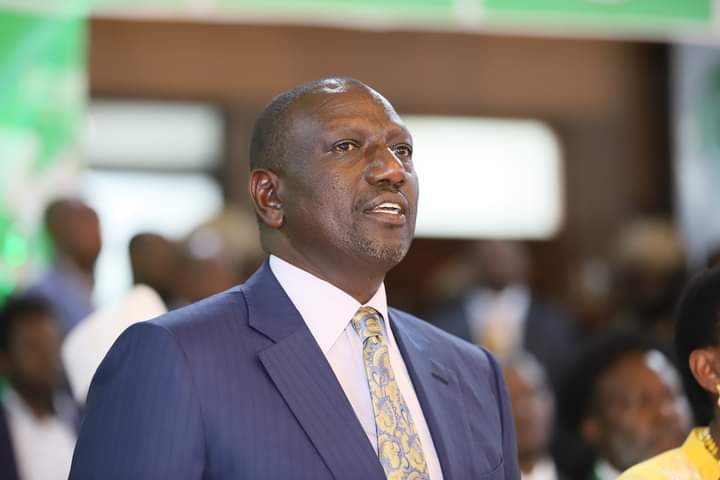The revival of Nigeria’s interest in energy transition, climate change and green economic solutions has raised high expectations within the extractive industries.
The recent constitution of a Presidential Committee on Climate Action and Green Economic Solutions and the appointment of focal persons was a fundamental step to redefining the country’s necessary next steps going forward.
Before this development, hopes on the way forward after the country’s participation at the Dubai Summit remained unclear to many.
The new development was therefore viewed by industry analysts as a major reinvestment of political and social capital into the global debate by President Ahmed Bola Tinubu.
Advertisement
It is equally noteworthy that the Presidential Committee and the appointed focal persons were handed specific mandates and responsibilities of coordinating and overseeing all policies and programmes on climate action and green economic solutions required to revive, redefine and reposition the country’s interests.
With the United Nations’ projection that Nigeria’s population will rise to about 400 million people in the next 20 years, an unprecedented increase in energy demand and the obvious pressure that will bring to bear on energy financing in developing countries, including Nigeria, the work of the Committee is both important and urgent.
Of utmost importance is the urgency to review existing plans, especially in the context of understanding content, context and comprehensive nature of the issues involved, the associated risks and the potential opportunities.
Advertisement
Also, it is essential to conduct a study on the scope of work required and index mapping of industry-related multi-stakeholders required for mobilization and civic engagement.
As we are aware, energy transition seeks a global shift away from fossil fuels to renewable sources of energy.
This global shift will certainly require sustaining the ongoing reforms of the extractive industries, which is at the heart of the work of the Nigeria Extractive Industries Transparency Initiative (NEITI).
In this respect, NEITI’s legitimate interests in Climate Change, Energy Transition and Green Economic Solutions are institutional, legitimate and multi-dimensional.
Advertisement
By its work and nature of operations, NEITI is equipped to support the country’s engagement in the areas of provision of access to credible information and data. This will be required to drive forward-looking analysis, underpin dialogue on policy responses as well as promote evidence-led public debate.
In addition, credible information and data are also essential in policy formulation, analysis of the legal and fiscal framework governing the extractive industries, climate change and greenhouse emissions.
Data is equally important in addressing climate change-induced environmental problems, public education and enlightenment that supports public understanding of government policies related to the energy transition agenda.
For instance, NEITI’s recent report on the oil and gas industry disclosed a total unremitted revenue of gas royalty payments of $559.8 million and another unremitted sum of $828.8 million from unpaid gas flare penalties.
Advertisement
A close look at these figures revealed that more gas resources was flared during the period than utilized, thereby posing serious dangers to the global zero emissions agenda and Nigeria’s commitment to the net zero emissions by 2060.
Apart from gas flaring, other major sources of dangerous emissions, massive environmental pollution and damage to the ecosystems include oil theft, illegal bunkering and refineries, pipeline vandalization.
Advertisement
Data from NEITI Reports between 2009 and 2021 disclosed that Nigeria lost 619.7million barrels of crude oil, valued at $46.16billion, or the equivalent of N16.25 trillion between 2009 and 2020.
In addition, Nigeria lost about 4.2 billion litres of petroleum products from refineries, valued at $1.84 billion at the rate of 140,000 barrels per day, from 2009 to 2018.
Advertisement
Thus, the total value of crude oil losses between 2009 and 2020 is higher than the size of the country’s foreign reserves, and almost ten times Nigeria’s savings in the Excess Crude Oil Account.
While the loss in revenues could be computed, the damage to the environment, community health, livelihoods through dangerous emissions is difficult to quantify and should be of interest to the Committee.
Advertisement
The need for a multi-stakeholders’ approach and the need for the government to properly situate the linkage between implementation of the global extractive industries transparency initiative, climate change, energy transition and green economic solution were among various issues discussed at a recent roundtable organised in Abuja by BudgIT Foundation, a non-governmental organisation.
Participants at the Roundtable which included NEITI, relevant government agencies, extractive industry experts, civil society groups, media and development partners, made a strong case for transparency, accountability, efficiency in budgeting and cost management in managing Nigeria’s engagement in the climate change, energy transition and green economic solutions.
While BudgIT Foundation, the organisers of the Roundtable Dialogue were concerned about coordination, efficiency in financing, budgeting and costing of climate change, energy transition. But NEITI was interested in supporting the process with credible information and data to inform quality decision making.
Besides, NEITI equally identified deliberate investments in solid minerals sector, gas commercialization and infrastructure, technology, research innovation, human capital development, transportation, storage, and use of low-carbon hydrogen as priority areas of focus the Presidential committee needs to factor into its plan.
NEITI’s position on gas commercialization as part of the plan is informed by the fact that Nigeria is endowed with the highest gas reserves in Africa and 9th largest in the world.
At over 206 trillion standard cubic feet of proven gas reserves, with a potential to grow to about 600 trillion standard cubic feet, the implementation of the energy transition programme would require the integration of a revised national policy on gas utilization.
Such a policy needs to be clear on the specific roles of the industry, government and investors in the implementation of the plan.
Similarly, the gas utilisation plan should show the market-driven opportunities that would successfully translate the gas plans into sustainable economic growth.
And for the gas utilisation policy to work, there is a compelling need for a deliberate ambitious investment in gas infrastructure, especially gas pipelines to provide connectivity across upstream facilities.
To achieve this, an estimated investment of $20bn annually would be required to bridge Nigeria’s gas pipeline/infrastructure gap.
Notably, the Minister of State for Environment, Dr. Ishaq Salako, who was the special guest at the BudgIT Roundtable, raised hopes of the government readiness to finance its renewed interest in support of the energy transition through the National Climate Change Policy and Climate Change Act designed to provide comprehensive policy framework and roadmap to sustain the country’s interest.
It was also a welcome development to learn from the Minister that a National Green Bond Programme was already enplaced to pioneer the issuance of sovereign green bonds in Africa to finance projects that reduce greenhouse gas emissions and promote sustainable development.
The direct impact of this regional policy intervention is the issuance of two sovereign green bonds to raise N25.69 billion to finance 39 projects cutting across afforestation, renewable energy, transportation, agriculture and water resources.
At a time when Nigeria is grappling with huge challenges in energy financing, low capacity utilisation, poor energy infrastructure, open, transparent and accountable management of the country’s interests in climate change, energy transition and green economic solutions is key in building the required public trust.
Given the growing reality of energy transition and the strong linkage with emissions control, especially methane, it is also important that regular stakeholders dialogue, training and capacity building are taken into consideration by the committee.
It is a fact that NEITI recognises that Nigeria needs to position itself at the centre of the global debate with capacity, skills and knowledge, to take full advantage of the opportunities that lie in the energy transition journey, while exploring wider global partnerships to mitigate the risks through innovative, courageous reforms towards economic diversification remains an inviting option
For Nigerians to trust and recognize these coordinated efforts by the government, the renewed interest and action plan to be unfolded by the Committee on climate change, energy transition and green economic solutions needs to translate the opportunities in the areas of investments in technology, solid minerals development, human capital development, transportation, agriculture, food security, manufacturing through the use of low carbon hydrogen and gas exploration.
Orji is executive secretary/CEO, Nigeria Extractive Industries Transparency Initiative (NEITI).
Views expressed by contributors are strictly personal and not of TheCable.
Add a comment









